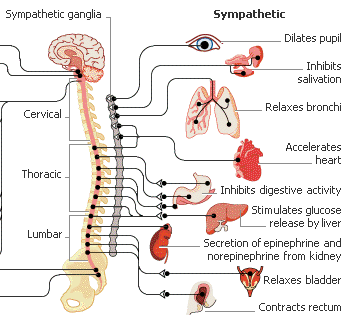Professional Women & Working Mums: Grab my FREE Burnout Recovery Guide.
Grace* was seemingly healthy and at the perfect time in her life to have a baby with her partner.
She spent close to two years trying, seeing different doctors, going through a barrage of tests and was preparing for IVF.
And then she changed her job, dropped her hours and went on a holiday. And got pregnant.
Now if you’re thinking ‘that’s extreme’ or even costly, consider the cost of IVF alone, not to mention the money already spent in the lead up to making that decision. A holiday doesn’t sound so bad after all huh?!
Grace is actually 4 different women I know.
But falling pregnant isn’t the only thing that stress can get in the way of.
I’m also talking about losing weight, battling auto-immune disease, getting cholesterol under control or dealing with symptoms of anxiety and depression.
It is not uncommon to see a client who is nailing her diet and exercise but simply cannot lose weight. And this client is typically so busy juggling a thousand commitments that she is completely out of touch with her body’s cries for help.
Plus, if I had a dollar for every time someone told me they weren’t stressed, (“what have I got to be stressed about?”), well let’s just say I would have a few dollars.
Chronic stress has physical effects on our bodies.
Stress causes activation of the sympathetic nervous system which triggers the following:

Dry mouth, shallow or difficulty breathing, rapid heart beat, poor digestion, increased blood sugar, restlessness, anxiety, poor sleep and constipation.
Plus a weakened immune system, increased inflammation and muscle tension, decreased libido, fatigue and even night sweats.
Think of this scenario – you are under attack and need to escape pronto…
Your sympathetic nervous system is designed to give you the best chance possible of surviving by opening your pupils to let light in so you can see better, slowing down any system not required right at this second – like the digestive, urinary and reproductive systems, and sending blood flow instead to the ‘need it right now’ areas like heart and muscles.
Are we under attack?
When our lives were simpler and our stressors came and went, our body would naturally slip back into the parasympathetic nervous system and away from this fight or flight response.
Nowadays our sources of stress are ever present. Work, 24/7 messages and emails, lack of true family and social support networks, feelings of isolation, sedentary lifestyle, poor sleep, not enough natural light, exposure to bright lights after dark, a toxic diet, poor gut health, exposure to more chemicals than our bodies have ever seen in the history of human beings, and overall a lost sense of purpose and connection to nature and our place on the earth! (Whew!)
Even looking back 2 or 3 generations it is really clear to see how fast our world, our technology and our societal structure is changing and just how much we have deviated from our natural way of life.
The point is that we are stuck in a state of stress and that this has real physical consequences on a chemical and cellular level in our bodies.

So how does this affect our weight?
The fight or flight response triggers a release of adrenaline and cortisol, hormones that trigger pathways of change in the body.
When we need to escape quickly, we need a boost of energy to our muscles. So our body converts glycogen stored in the liver to glucose and puts this extra sugar into our blood stream so that we can use it.
Now we aren’t designed to have a lot of sugar sitting in our blood stream so the pancreas (an organ next to the small intestine) releases insulin (a hormone) that drives the glucose out of the blood and into the cells, keeping our blood sugar stable.
So our sympathetic nervous system, in trying to save our lives, not only increases our blood sugar but also suppresses our response to insulin, keeping our blood sugar high in case we need the extra energy. (If you’re thinking this sounds a lot like type 2 diabetes – you are right.)
This survival mode also causes a mobilisation of fats into the blood stream, more storage of abdominal fat, reduced sensitivity to leptin (the hormone that tells you when you’re full) and increased hunger… basically a recipe for weight gain!
Remembering that the sympathetic nervous system reduces functioning and blood flow of the reproductive and digestive systems, it is also easy to see how stress plays an important role in the development of common problems like irritable bowel syndrome and infertility.
Could stress be a problem for you? Here’s how to tell and what to do about it. Read Part 2 –> Enter Relax Mode
—
Have you ever wondered just how close to complete burn out you might be? TAKE THE QUIZ and find out.

Kelly Moriarty is an online health & nutrition coach and founder of The Green Body Plan.
After 5 years as a veterinarian Kelly was unhealthy, stressed out and generally dissatisfied.
She now helps professional women make the same changes she did to beat burn out, lose weight, recover their energy and take back control of their health naturally.
